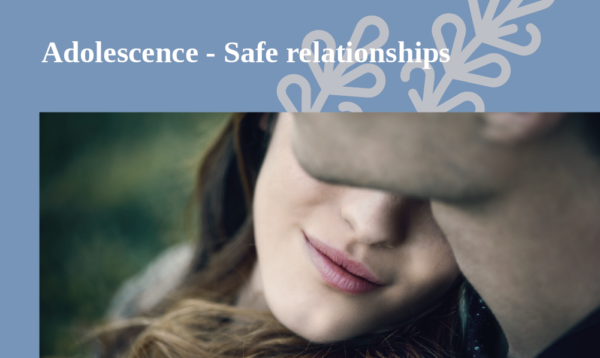Adolescence: Making safe relationships
Entering adolescence begins the discovery of sexuality, the young person’s identity, contact with the (other) sex or with what interests him most; the first sketches, the flirting, the teasing, the dating, the new acquaintances begin. In other words, teenagers gradually enter “the world of the adults,” discovering the creation, function, maintenance of the relationship, the management of separation, and its consequences and the research for a new partner.
Because when the heart “wakes up,” the mind’s commands may not be heard and, thus, young people act and react more impulsively, we can admit that experience is the best for learning. Through friction with a problem, we get closer to the solution, but, on the other hand, the contribution and support of parents and teachers can be crucial in choosing the relationships they form ultimately.
First, you need to recognize and understand the danger of relationships that start with a superficial acquaintance on the internet, at a party, etc. You can prefer to go out with someone you have known for some time, who has earned your respect and “checked” how he/she behaves in different contexts.
Moreover, one’s appearance and humor may play an important role in how attracted you will feel for them. Still, it is of secondary importance when you need to reflect on how one behaves, his character, and his reactions in various circumstances.
When you start to relate, first and foremost, show respect for yourself, and that’s not the case when you go out with someone who ignores, rejects, or underestimates your feelings, values, and the important things to you.
It’s crucial in the first times you meet someone to pay attention to your intuition and the warning signs that might appear about him and his character. If something seems strange, remarkable, or foreign to you about what you know or are used to, it is a good thing to investigate it further, seek some advice and, if you think it might harm you, leave as soon as possible.
Also, at the beginning of a relationship with someone, it is preferable to choose to spend time with that person in public places and/or with multiple people and not in isolated areas so that if something happens, you will be able to walk away or even ask for help if needed.
Be sure to look for partners who positively influence your character and motivate you to “take out” your best self; partners who encourage you to be honest, respectable, responsible, and caring.
Trust in others starts with small and insignificant things to reach the most critical areas of your life. Proceed with the step-by-step relationship until you’re sure of your next move.
If you find yourself in a relationship where you feel undervalued, abused, under the will of the other, be sure to seek help to take control of decisions concerning you and your actions.
Everyone’s sexuality is a valuable part of you, and sex will come effortlessly when the couple has been challenged in various situations, is committed to a relationship of love and devotion, and feel ready to trust each other that part of themselves. In other words, it must not come as an attempt to prevent the other from breaking up with you, to gain his love and intimacy, or to “force” him to care for you.
Listen to your family and friends who know you and your needs well when expressing specific concerns about a relationship or possible relationship.
In general, remember that appointments and relationships, even short-lived ones, are essential experiences through which you learn, as long as you always stay safe. Learn what you like and don’t like in a relationship, what your desires and needs are, how to work in a balance with your partner, what requirements you have from a relationship, what behaviors you accept and what you don’t; tools and knowledge valuable for your later life.


